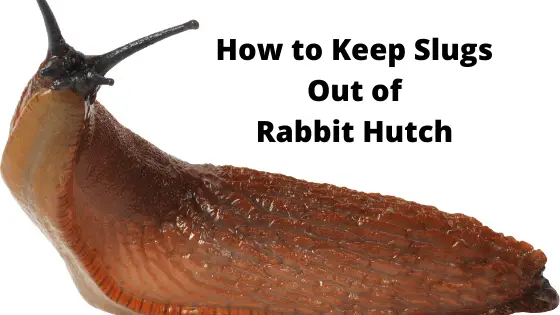As a General rule Use sprinkle salt around the legs of the rabbit hutch. Salt ring – spread a ring of salt around your hutch kills slugs, but rabbits just get a little bit of salt which is good for them, Other Natural means are Cats Claw, Tumeric, Garlic. Natural predators include Beetles, Snakes, Turtles, and Nematodes
Keeping Slugs out of Rabbit Hutch – (7 Ways) Bunny Slugs
- Salt – Bottom Legs of rabbit’s hutch
- Ponds -Slug Predators Eat Them
- Covers for slug Collection
- Slug Beer Traps
- Nematodes
- Nemaslug – Will is not hurt pets or animals
- Wool Pellets – Slugone -2 Copper tapes with a 9-volt battery
See Amazons Resources for Looking at Available Rabbit Hutches
How to keep Slugs out of Rabbit Hutch – Slimy Slugs attacking your Rabbit Hutches. Here are some of the methods you can use to rid yourself of this incredibly toxic and common little Guy. Slugs love the same diet that your rabbits do so they will follow into the Rabbits dining Table to feast. You will find here easy to understand of Slugs, their dangers, and control
Bunny Slugs – How do Slugs get in your Rabbit Hutches? They Can enter the Rabbit Hutches from several means. They can crawl in. Very slow but steady. They can move up and down the legs of the Hutches.
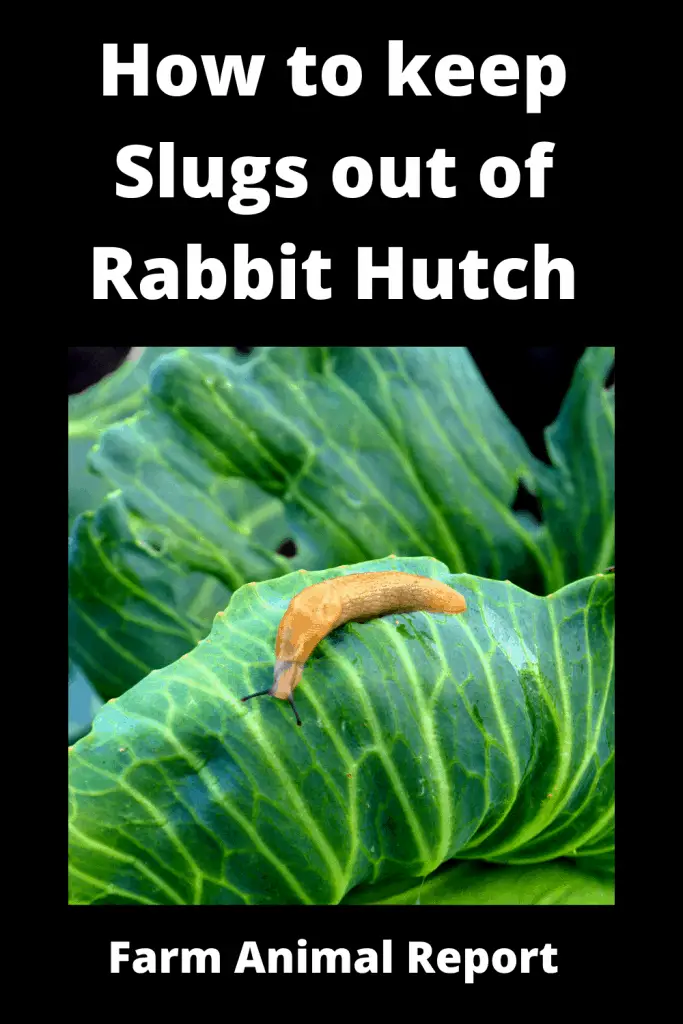
The most common way is through Rabbit feed ( Feeding on rabbit food). When you are feeding your Rabbits. Slugs eat the same things. It is easy for them to be put in Rabbit Pens through being the wrong place, wrong time.
You can also Read our Guide –18 Ways to Make Money by Rabbit Farming—Extensive Guidelines for Rabbit Farmers
Do Rabbits Eat Snails / Slugs
No, Do not Voluntarily eat Slugs. Rabbits are vegetarians so their predatory diet is none. A pest that gets in with your rabbits, is just that they can harm and annoy your rabbits.
Flys, Roaches, Mice Many things are attracted to rabbit food. The Grasses you feed your bunnies and any veggies and greens you feed them are the same tasty food to slugs. Rabbit Pellets also attract many unwanted guests that like the food you are feeding your bunny
The Problem with Slugs and Snails
One of the most dangerous problems with your Rabbit accidentally eating the slug attached to the backside of the leaves you are feeding the rabbit. These Snails carry a parasite called Lungworms – which can be fatal to your rabbits.
The Rabbit can become infected by eating the slug, by also eating vegetation that has the slime or excretions of the snail / Slugs.
Can Slugs / Snails Harm Rabbits
Yes, they can, But in a roundabout way. Slugs are not carnivorous and are going to latch on and eat or suck the blood of your rabbits. They will not corner your bunny and attack, they will not surround and attack as a Wolf Pack.
The Slugs act as hosts to a parasite that loves Animals, Dogs, Cats, and Rabbits included. The lifecycle is very complex.
Slugs and Crayfish, carry the parasite and so no wildlife. Foxes and Racoons have been infected. Animals that eat their feces and then are contaminated.
Can Rabbits get Lungworm from Slugs / Snails
Yes, Rabbits get this parasite. The Adult Parasite then finds a home in the Rabbits Lungs. Then as a Mature adult parasite, it breeds and has eggs. The Eggs Hatch is now larvae. These larvas cause infections which then the infected animal, host.
The mucous and Flem and discharge is infected with the larvae. Any animals that then assimilate that infected slime, mucous, coughed up discharge, then become infected and the process begins again.
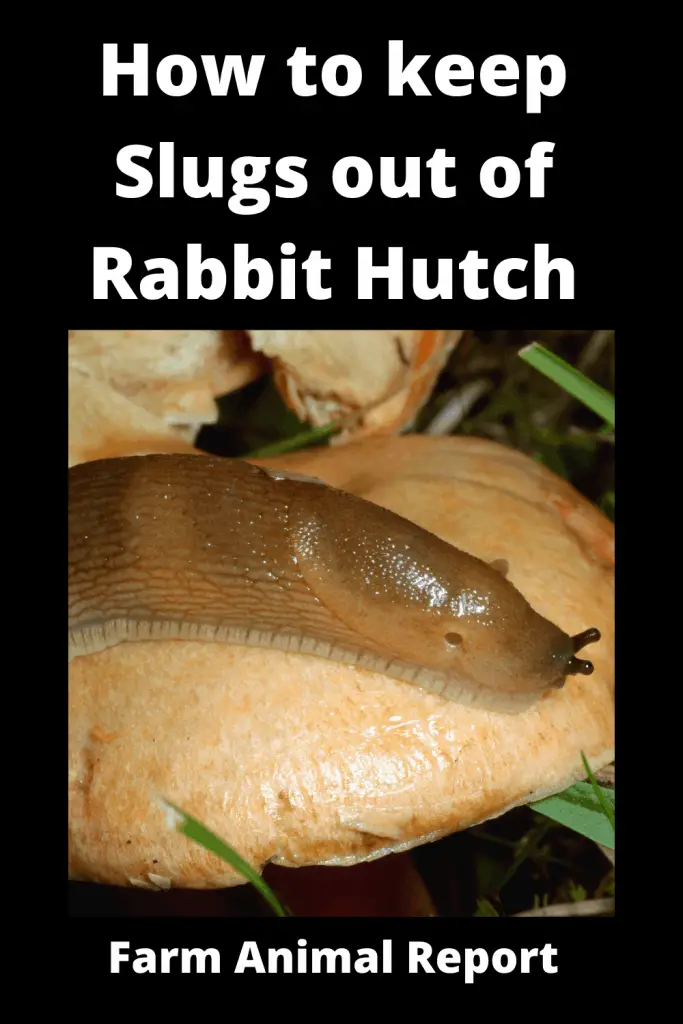
One of the major players in this life cycle of the Lungworm is the slug. Slugs eat about anything. They love the environment that your rabbits do, many animals do.
The infected animals’ contaminated discharge is then eaten by the slug. The Slug / Snail then carries the parasite around and spreads the presence of the parasite in the cycle.
Then your rabbits, dogs, cats eat infected slugs or slug slime, and then the parasite heads from the animal’s lung to begin Homesteading and starting a family.
The Rabbits can also become infected by eating their food and water that has been contaminated by the S=infected Host Slug. Any animals eating the slime trail can become infected.
For confirmation and diagnosis, your vet can have Rabbit Poop tested for the Larva
Symptoms of Lungworm Infection
It takes about 28 days from the time of infection for adult worms to be in the Rabbits Lungs.
- Breathing Difficulties from Lungworm populations in Lungs
- Coughing
- Coughing and spitting up blood
- Nose Bleeds
- Weight Loss
- Blood clotting problems excessive bleeding from wounds
- Eggs and larvae are not visible by eye in feces
- Lethargy
- Pneumonia
- With heavy infestation can cough up worms
- Lungworms are not Know to infect Humans
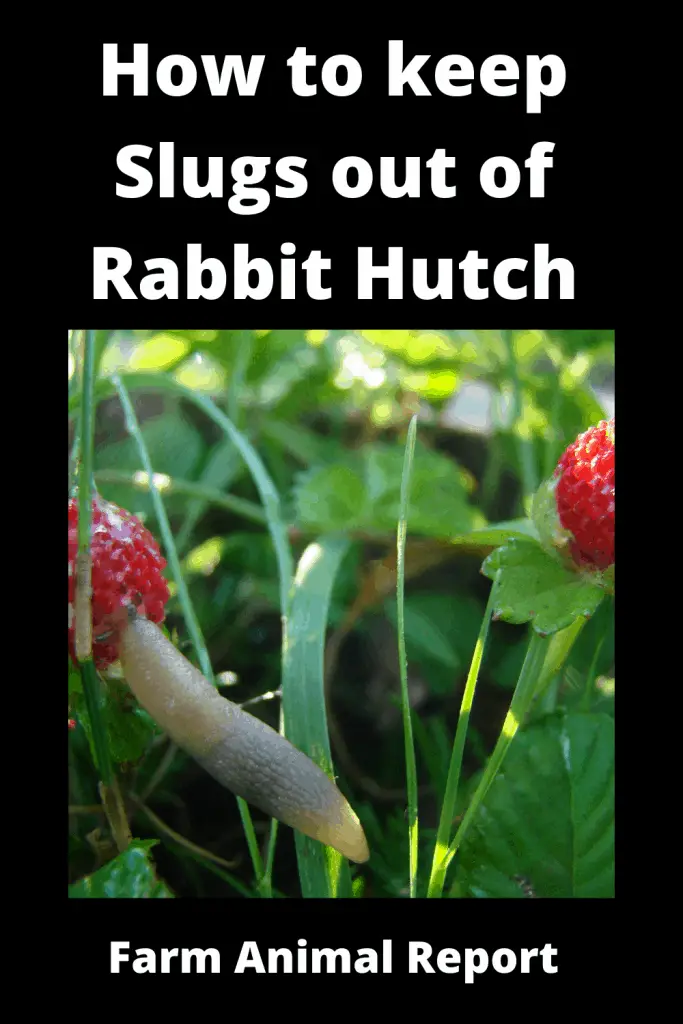
What Slugs / Snails Eat
Slugs eat mostly garden Materials. Green Leaves and Grass. They Mostly Feed at Night. They do not have shells to protect them. So they mainly feed at night or on rainy days so they are protected from the hot dry sun. They are very common to see them after rain. They need moisture to be able to move about freely.
They are in contrast to snails in that snails have a shell to protect their bodies.
During the Daytime, they tend to hide under rocks and leaves seeking protection
Eliminate Them
Getting Rid of Slugs Needs to be done in ways that will not hurt your Rabbits
- Ponds – Slug Predators eat them
- Covers for slug Collection
- Slug Beer Traps
- Nematodes
- Nemaslug – Will is not hurt pets or animals
- Wool Pellets – Slugone –
- 2 Copper tapes with a 9-volt battery
Drugs to Treat Lungworms
- Anti Parasitic Drugs
- Ozone Treatments
- Essential Oil Inhalation Therapies
- Monthly Treatments
- Oral Wormers – Note not all Wormers are effective against Lungworms
- Advocate
- Containing Ivermectin
- Containing Moxidectin
- Containing Benzimidazole
Natural Remedies to Prevent Slugs
- Salt – ring – spread a ring of salt around your hutch – kills slugs, but rabbits just get a little bit of salt which good for them
- Oral cat’s Claw
- Tumeric
- Garlic
- Essential Oil Inhalation Therapies
- Natural Predators are
- Beetles
- Snakes
- Toads
- Turtles
- Birds
- Nematodes
Nematodes Natural Enemies of Slugs
When trying to address any pest problem or overpopulation. It is very green to handle it as Naturally as possible. Nematodes are tiny round Worms ( these are different than the Roundworms that wreck havoc in Animals)
These little guys are called phasmarhabditis hermaphrodite or PH for short. They live in the ground and then they attack slugs by entering the slug’s breathing apparatus. They then take up residence inside the slug and then begin decomposing them from inside, by secreting bacteria.
The infected slugs stop eating in about three days, then they die in a week.
Growing your Own Nematodes
- Catch as many slugs as you can 20 +
- Put them in a bucket
- add 1 inch of water
- Give them food – make an island of the leaves – don’t want to drown the slugs, but let them eat, the nematodes will multiply in the water
- Put concrete slab or lid on top of the bucket
- Stir every couple of days
- After two weeks the slug will have died from the nematodes
- Now add water and fill watering can and water the area slugs are mostly at.
- Gives about 2 months prevention -3 – 8 weeks decline in slug population.
- After Distribution – Keep soil moist – nematodes need moisture to survive
- Direct sunlight will kill them, apply at night or overcast day
- Thrive between 54 – 77 Degrees Fahrenheit
- Best applied between March and September
Can Slug Pellets Kill Rabbits
Yes, Do not use slug Pellets. They not only kill the slugs by chemicals, but they will also kill any animals that eat the slugs that have been poisoned.
- Wool Pellets – Slugone – Will also Kell Rabbits
- Slug Pellets – will also kill Rabbits
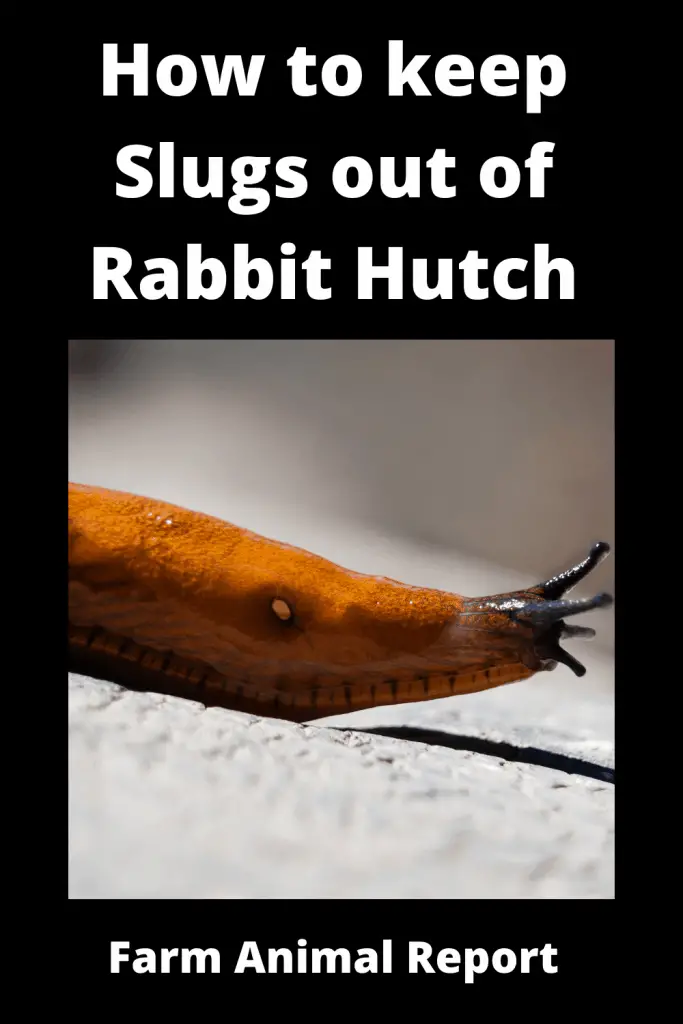
Prevention of Rabbit Infection
Once your pet has had an infestation of Lungworm and has been treated for it it is important to have its feces rechecked to make sure that your Rabbit is clear
Routine Treatments for the prevention of Lungworm usually on three-month intervals. Similar to the monthly treatments for Fleas and Heartworms.
Watch for Slug Eggs in any compost or materials you are using.
Removing any Feces that are laying around Rabbit, Dogs, and Cats – gets rid of feces that might contain Lungworm larva or Eggs
Using Natural Methods go to the root of the Problem and remove your slugs. Most Rabbit Owners Hate Slugs.
Can You use Diatomaceous Earth for slug control?
There are a number of ways to control slugs organically. You can encourage natural predators such as snakes, lizards, toads, frogs, ground beetles and birds. These animals will help keep the slug population in check. You can also use physical barriers such as row covers or copper tape to keep slugs from getting to your plants. But sometimes you need a little extra help.
Diatomaceous earth is one option for organic slug control. It’s a natural product made from the fossilized remains of tiny algae-like creatures called diatoms.
Diatomaceous earth works by absorbing the oils and fats from the slug’s body, causing it to dehydrate and die. It’s important to use food-grade diatomaceous earth for this purpose, as other types may be harmful to humans and animals.
Iron Phosphate Baits for Slug Control
Iron phosphate baits are a safe and effective way to control slugs and snails in your garden. These baits work by causing the slug or snail to stop feeding, which eventually leads to death.
Iron phosphate is also harmless to people, pets, birds, and wildlife. You can apply these baits around the base of plants or scatter them on the soil surface. They’re most effective when applied before rain or irrigation.
Whether you choose diatomaceous earth, Sluggo, iron phosphate baits, or another method of organic slug control, be sure to follow the instructions carefully and take precautions to protect yourself and your family. With a little effort, you can keep your garden free of these pesky creatures.
How to use Copper (Copper Wire) in Slug Prevention?
Cooper can be used by surrounding the base of plants with a copper band or ring. This will prevent slugs from getting to your plants. You can also use copper tape, which is available at most hardware stores. Just be sure to apply it carefully so that it doesn’t come into contact with any leaves or stems, as this could damage your plants.
Another way to use copper in slug prevention is to create a copper wire fence around your garden. This will keep slugs out while allowing other creatures, such as bees and butterflies, to enter. Just be sure to bury the bottom of the fence a few inches into the ground so that slugs can’t just crawl underneath it.
7 Ways; How to Protect a Large Hutch from House Rabbits?
Here are 7 methods to protect your Rabbits from Slugs are:
- Diatomaceous Earth: This is a type of powder made from fossilized algae. It works by absorbing the oils and fats from the slug’s body, causing it to dehydrate and die. Just be sure to use food-grade diatomaceous earth, as other types may be harmful to your rabbits.
- Sluggo: This is a granular bait that contains iron phosphate. It works by causing the slug or snail to stop feeding, which eventually leads to death. Sluggo is safe for people, pets, birds, and wildlife.
- Copper Tape: You can use this tape to create a barrier around the base of plants or along the soil surface. Copper is poisonous to slugs and snails but harmless to other creatures.
- Copper Band: You can use a copper band or ring to surround the base of plants. This will prevent slugs from getting to your plants.
- Fence: You can create a copper wire fence around your garden. This will keep slugs out while allowing other creatures, such as bees and butterflies, to enter. Just be sure to bury the bottom of the fence a few inches into the ground so that slugs can’t just crawl underneath it.
- Row Covers: Row covers are a physical barrier that you can place over plants to keep pests from getting to them. They’re made of a lightweight fabric that allows sunlight and water to pass through but keeps insects out.
- Plants That Deter Slugs: There are certain plants that slugs and snails don’t like, such as lavender, rosemary, and thyme. Planting these around the perimeter of your garden can help to deter these pests.
Hopefully, one of these methods will work for you in protecting your large hutch from house rabbits!
7 Ways; How to Protect Rabbit Food from slug contamination?
Rabbit Food is especially prone to having slugs eat it. 7 methods to protect your Rabbit Food are:
- Sealed Container: Keep your Rabbit Food in a sealed container, such as a Tupperware. This will prevent slugs from getting to the food.
- Clean up any spillage: If there is any spillage, clean it up immediately. This will prevent slugs from being attracted to the area.
- Keep the area around the food clean: Make sure to keep the area around the food clean and free of debris. This will help to deter slugs from the area.
- Use a physical barrier: You can use a physical barrier, such as a piece of cardboard, to keep slugs away from the food. Just be sure to replace it regularly so that it doesn’t become a breeding ground for them.
- Apply diatomaceous earth: Diatomaceous earth is a type of powder made from fossilized algae. It works by absorbing the oils and fats from the slug’s body, causing it to dehydrate and die. Just be sure to use food-grade diatomaceous earth, as other types may be harmful to your rabbits.
- Plant lavender: Lavender is a plant that slugs and snails don’t like. Planting it around the perimeter of your garden can help to deter these pests.
- Hopefully, one of these methods will work for you in protecting your rabbit food from slug contamination!
What the Life cycle of The Slug?
The Life cycle of the Garden Slug is:
- Eggs: Garden slugs lay their eggs in the soil, usually in late summer or early fall.
- Slug larvae: The slug larvae hatch from the eggs and are small replicas of the adults. They begin feeding on plants immediately.
- Adults: The adult slugs emerge from the soil in spring and continue to feed on plants throughout the growing season.
As you can see, the life cycle of the garden slug is fairly simple. But, as you now know, these creatures can cause a lot of damage to your plants! Hopefully, this information will help you to better control them in your garden.
What are Natural Predators that Eat Slugs?
A Slugs natural Predators are;
- Birds: Birds, such as chickens and ducks, will eat slugs.
- Insects: Insects, such as ants and beetles, will also eat slugs.
- Mammals: Mammals, such as shrews and moles, will also eat slugs.
What do Slugs Eat?
Slug’s diet consists of;
- Plants: Slugs will eat just about any type of plant, including vegetables, fruits, and flowers.
- Mushrooms: Slugs also like to eat mushrooms.
- Snails: Slugs will even eat other snails!
As you can see, the diet of a slug is quite varied. But, one thing is for sure, they can cause a lot of damage to your garden if left unchecked.
What Weather Conditions are Best for Slug Populations?
Slugs grow best in cool, moist conditions. So, if you live in an area with a lot of rain or fog, you’re likely to have more slugs than average. Slugs also like shady areas, so gardens that are mostly in the sun may have fewer slugs.
What Time of Year are Slugs Most Active?
Slugs are most active at night and during cool weather. So, if you see damage to your plants in the morning, it’s likely that slugs were responsible. During hot weather, slugs will often hide in cool, damp places during the day and come out at night to feed.
Do Slugs Like Cardboard Boxes?
For Slugs Cardboard is a great place to lay their eggs, so you may find a lot of them in and around cardboard boxes. If you have a problem with slugs in your garden, it’s best to avoid using cardboard as mulch.
Hand-picking: This is probably the easiest way to get rid of slugs. Just go out into your garden at night with a flashlight and pick them off your plants. Be sure to dispose of them far away from your garden so they don’t just come back.
Baiting: You can bait slugs with beer or dog food. Just put some out in a dish and they will be attracted to it. Then you can just dispose of them in the morning.
Barriers: You can use a physical barrier, such as a piece of cardboard, to keep slugs away from your plants. Just be sure to replace it regularly so that it doesn’t become a breeding ground for them.
Diatomaceous earth: Diatomaceous earth is a type of powder made from fossilized algae. It works by absorbing the oils and fats from the slug’s body, causing it to dehydrate and die. Just be sure to use food-grade diatomaceous earth, as other types may be harmful to your plants.
Lavender: Lavender is a plant that slugs and snails don’t like. So, planting some around your garden can help to keep them away.
Salt: Salt is another thing that slugs don’t like. Just sprinkle some around your plants and it will help to keep them away. Be careful not to use too much salt, as it can be harmful to your plants.
What types of wood shavings discourage Slugs?
Wood Shavings that discourage slugs is Cedar.
Cedar: Cedar is a type of wood that has a strong smell. This smell helps to keep slugs away.
How often should I look for Slugs?
You should check your garden for slugs every few days, especially after it rains. If you find any, be sure to dispose of them far away from your garden so they don’t just come back.
Final Thoughts – How to Keep Slugs Out of Rabbit Hutch
Slugs can be a problem for rabbits kept in hutches, as they are attracted to the soft fruit and vegetables that make up a rabbit’s diet. They can also carry diseases that can be harmful to rabbits. There are a number of ways to keep slugs out of hutches, including:
- Using slug bait around the perimeter of the hutch. This will kill any slugs that try to enter the hutch.
- Keeping the hutch clean and free of food debris. This will remove any potential food sources that might attract slugs.
- Placing a piece of cloth or other material over the ventilation holes in the hutch. This will create an obstacle that slugs will have to overcome in order to enter the hutch, making it less likely that they will succeed.
By taking these steps, you can help to keep slugs out of your rabbit’s hutch and protect your rabbit from harm.


